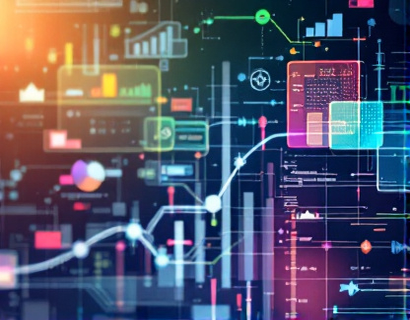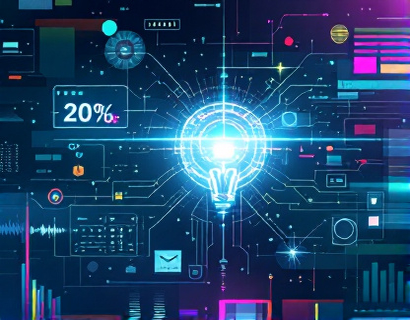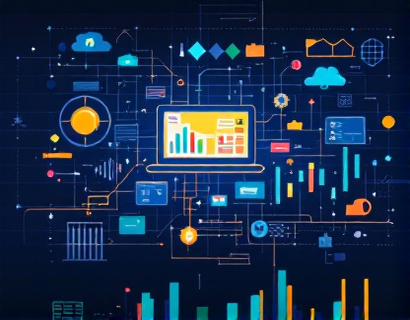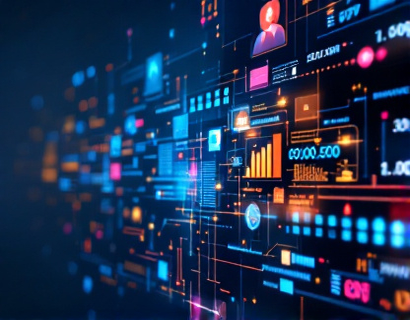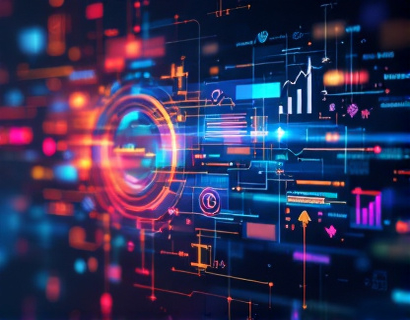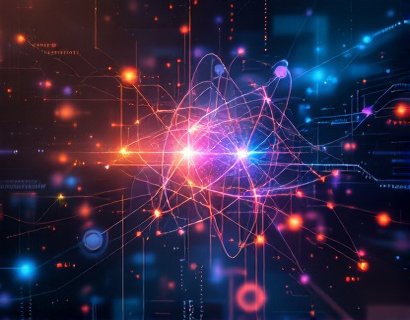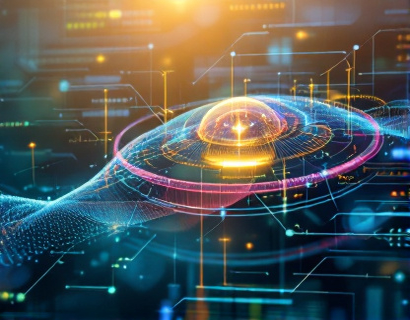Revolutionizing Productivity with AI and Crypto: Advanced Digital Solutions for Tech Innovators
The intersection of artificial intelligence (AI) and cryptocurrency is paving the way for unprecedented advancements in digital productivity tools. For tech innovators and early adopters, this synergy offers a transformative opportunity to revolutionize workflow and task management. This article delves into the cutting-edge solutions that leverage AI and cryptocurrency to create smarter, more efficient digital tools, providing a glimpse into the future of seamless task optimization and workflow enhancement.
The integration of AI and cryptocurrency is not just a technological curiosity but a practical approach to enhancing productivity. AI brings the power of machine learning, natural language processing, and predictive analytics to the table, while cryptocurrency offers a decentralized, secure, and transparent means of transaction and data management. Together, these technologies can create digital ecosystems that are not only highly efficient but also resilient and user-centric.
AI-Powered Task Management
One of the most immediate benefits of AI in productivity tools is the enhancement of task management systems. Traditional task managers rely on manual input and basic scheduling algorithms, which can be limiting and error-prone. AI-driven task managers, however, can analyze user behavior, predict task priorities, and automate routine tasks with high accuracy.
For instance, an AI-powered task manager can learn from a user's past actions to suggest optimal times for task execution, automatically prioritize tasks based on urgency and importance, and even delegate tasks to team members based on their availability and expertise. This level of automation not only saves time but also reduces the cognitive load on users, allowing them to focus on higher-value activities.
Moreover, AI can integrate with calendar applications and other productivity tools to create a seamless workflow. By syncing with digital calendars, AI task managers can avoid scheduling conflicts and ensure that deadlines are met without manual intervention. This integration is particularly beneficial for remote teams and freelancers who need to coordinate across different time zones and regions.
Cryptocurrency for Decentralized Workflows
Cryptocurrency plays a crucial role in enhancing the decentralization and security of digital workflows. Traditional workflows often rely on centralized servers and intermediaries, which can be points of failure and potential targets for cyberattacks. By leveraging blockchain technology, cryptocurrency enables the creation of decentralized applications (dApps) that operate on a peer-to-peer network, eliminating the need for central authorities.
In the context of productivity tools, this means that data and transactions can be securely stored and processed without the risk of a single point of failure. For example, a decentralized task management platform can use blockchain to ensure that task assignments and completions are immutable and verifiable by all participants. This transparency builds trust and accountability within teams, especially in industries where compliance and data integrity are paramount.
Furthermore, cryptocurrency can facilitate micropayments and token-based incentives within these decentralized workflows. Users can be rewarded with tokens for completing tasks or contributing to the network, creating a motivational system that aligns individual efforts with the overall goals of the project. This token economy can be particularly appealing for freelance workers and independent contractors who seek flexible and fair compensation models.
Smart Contracts for Automated Processes
Smart contracts, self-executing contracts with the terms directly written into code, are another powerful tool at the intersection of AI and cryptocurrency. In productivity ecosystems, smart contracts can automate complex workflows by executing predefined actions when certain conditions are met.
For example, in a project management scenario, a smart contract can automatically release payment to a vendor once the delivered milestones are verified by the project manager. This not only speeds up the payment process but also reduces the administrative burden on both parties. AI can enhance this process by analyzing project data to predict milestones and ensure that the smart contract triggers are set up correctly and efficiently.
Additionally, smart contracts can be used to manage intellectual property rights and content usage within collaborative environments. By encoding copyright and licensing terms into smart contracts, creators can ensure that their work is used as intended and that they receive proper compensation. This is particularly valuable in creative industries where protecting intellectual property is crucial.
Enhanced Data Security and Privacy
Data security and privacy are critical concerns in the digital age, and the combination of AI and cryptocurrency offers robust solutions to these challenges. AI can be used to detect and mitigate security threats in real-time, analyzing patterns and anomalies to identify potential breaches before they occur. This proactive approach is far more effective than traditional security measures that rely on predefined rules and signatures.
Cryptocurrency, particularly through the use of advanced cryptographic techniques, ensures that data is encrypted and only accessible to authorized parties. Blockchain's inherent transparency and immutability provide an additional layer of security, making it extremely difficult for malicious actors to alter or tamper with data. This is especially important for sensitive business information and personal data that is often handled in productivity workflows.
Moreover, zero-knowledge proofs and other privacy-preserving technologies can be integrated with AI and cryptocurrency to allow for secure data sharing without compromising individual privacy. This enables collaboration and data analysis while maintaining confidentiality, a crucial feature for businesses operating in regulated industries such as healthcare and finance.
User-Centric Design and Accessibility
The true potential of AI and cryptocurrency in productivity tools is realized when these technologies are designed with the user in mind. User-centric design ensures that tools are intuitive, accessible, and tailored to the specific needs of tech innovators and early adopters. AI can analyze user interactions and feedback to continuously improve the user experience, adapting to individual preferences and work styles.
Cryptocurrency-based platforms can also prioritize accessibility by offering decentralized access to tools and services, reducing the need for expensive hardware or subscription fees. This democratization of access ensures that innovative digital solutions are available to a broader audience, fostering a more inclusive tech ecosystem.
For instance, a decentralized cloud storage service powered by AI and cryptocurrency can offer secure, scalable, and cost-effective storage solutions. Users can store and share files without relying on centralized cloud providers, ensuring data sovereignty and control. AI can optimize storage usage and data retrieval, making the service both efficient and user-friendly.
Future Trends and Innovations
As AI and cryptocurrency continue to evolve, we can expect even more innovative applications in the realm of productivity tools. One promising area is the integration of AI with augmented reality (AR) and virtual reality (VR) to create immersive work environments. These technologies, combined with blockchain, can enable collaborative virtual spaces where team members can interact and work together in real-time, regardless of their physical locations.
Another exciting development is the use of AI-driven predictive analytics to optimize resource allocation and project planning. By analyzing historical data and real-time metrics, AI can forecast project outcomes and suggest adjustments to maximize efficiency and minimize risks. This predictive capability, when combined with the transparency and security of blockchain, can revolutionize how projects are managed and executed.
Furthermore, the rise of decentralized finance (DeFi) platforms offers new opportunities for integrating financial services into productivity tools. DeFi allows for lending, borrowing, and trading without traditional financial intermediaries, providing users with more control and flexibility. AI can enhance these services by offering personalized financial advice and automating investment strategies based on user goals and risk tolerance.
Conclusion
The synergy between AI and cryptocurrency is transforming the landscape of productivity tools, offering tech innovators and early adopters powerful solutions to enhance workflow and task management. By leveraging the strengths of both technologies, we can create digital ecosystems that are smarter, more secure, and more user-friendly. As these innovations continue to mature, the potential for further advancements and new applications is vast, promising a future where productivity is not just improved but fundamentally reimagined.





